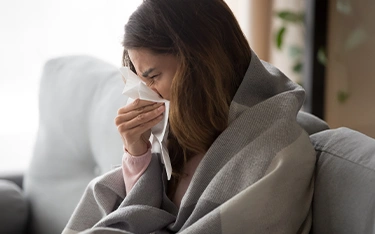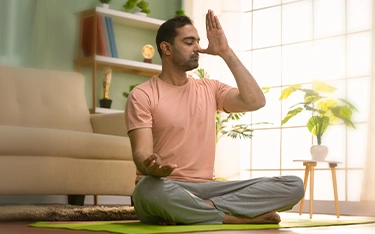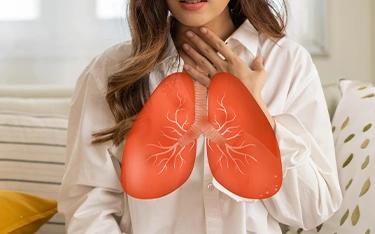FAQs
Respiratory allergies occur when the immune system overreacts to airborne substances like dust, pollen, or pollution. They often cause sneezing, nasal congestion, coughing, and wheezing. Due to rising pollution levels in urban India, respiratory allergies are common.
Airway allergy symptoms like sneezing, wheezing, and breathlessness often worsen with pollution or seasonal changes. Triggers include dust, fumes, and food allergens like dyes, wheat, groundnuts, and eggs. Avoid these, especially food colors, until homeopathy begins to work on your system.
Yes, respiratory allergies are curable in most cases. Homeopathy helps reduce the frequency and intensity of symptoms by improving immunity and addressing the root cause.
Yes, children can develop respiratory allergies due to airborne allergens like dust or pollen. Early diagnosis and gentle treatments like homeopathy help control symptoms, improve immunity, and reduce recurrence, ensuring better breathing and overall wellness from a young age
Respiratory allergies are often triggered by airborne irritants such as pollen, dust mites, pet dander, mould, smoke, or pollution. Identifying specific triggers and managing exposure, combined with targeted treatment, can significantly reduce allergic reactions and improve breathing comfort.
Homeopathy works by strengthening the immune system, calming inflammation, and reducing sensitivity to allergens. It treats the root cause of symptoms like sneezing or breathlessness, offering long-term relief without the drowsiness or side effects of conventional medications.
Yes, homeopathy is a safe and non-toxic system of medicine. It’s suitable for long-term use, even in children and elderly individuals. It provides sustainable allergy management by building internal resistance rather than suppressing symptoms temporarily.




